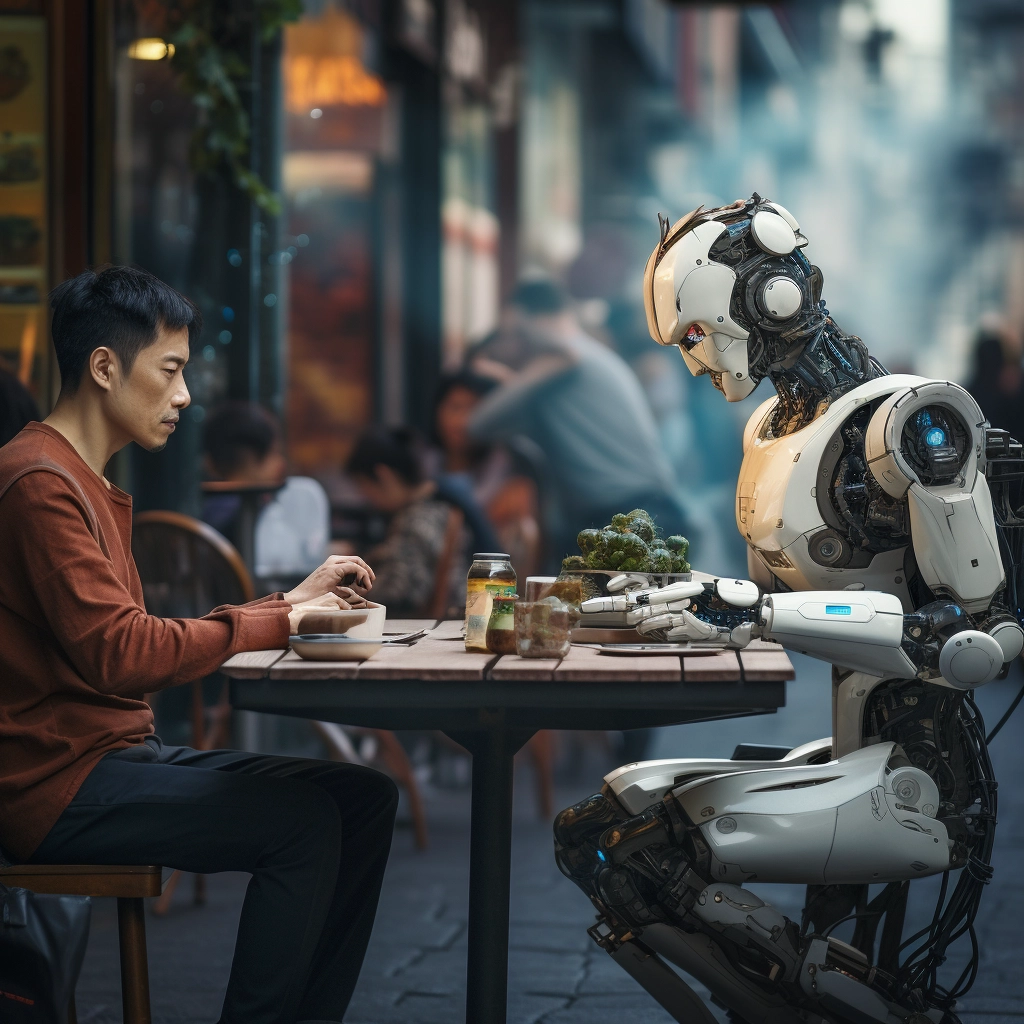Artificial Intelligence (AI) has emerged as a transformative force, revolutionizing industries and reshaping the way we live and work. From healthcare to finance and transportation, AI is revolutionizing various sectors, providing advanced solutions and enhancing our daily lives. In this blog, we will explore the profound impact of AI on these industries and delve into the ways it is transforming our everyday experiences. 1. AI in Healthcare Artificial Intelligence (AI) has made significant strides in the healthcare sector, offering improved diagnostics, personalized treatments, and streamlined care processes. With the ability to process vast amounts of medical data, AI algorithms can accurately detect diseases, assist in medical image analysis, and predict patient outcomes. Companies like IBM’s Watson Health and Google’s DeepMind are leading the way in AI-powered healthcare innovations. Moreover, AI-powered chatbots and virtual assistants are enhancing patient engagement and providing round-the-clock support. 2. AI in Finance The financial industry has embraced Artificial Intelligence (AI) to automate processes, detect fraud, and provide personalized financial services. AI algorithms can analyze vast amounts of financial data, identify patterns, and make predictions that aid in investment decisions. Chatbots and virtual assistants powered by AI are transforming customer interactions, offering personalized recommendations, and enhancing user experiences. Fintech companies like Wealthfront and Betterment are utilizing AI to provide automated financial planning and investment advisory services. 3. AI in Transportation The transportation industry is experiencing a major transformation with the integration of AI. Autonomous vehicles, guided by Artificial Intelligence (AI) algorithms, are set to revolutionize transportation, making it safer, efficient, and sustainable. AI-powered traffic management systems can optimize routes, reduce congestion, and minimize travel time. Additionally, logistics companies are utilizing AI for fleet management, predictive maintenance, and supply chain optimization. 4. AI in Daily Life Aside from specific industries, Artificial Intelligence (AI) is increasingly becoming a part of our daily lives. Virtual voice assistants like Amazon’s Alexa and Apple’s Siri have become household names, offering convenience and assistance in various tasks. AI-powered recommendations on streaming platforms like Netflix and Spotify have transformed the way we consume entertainment. From personalized shopping experiences to smart home automation, AI is enhancing the quality of our everyday lives. Final Words Artificial Intelligence has undoubtedly revolutionized industries such as healthcare, finance, and transportation, with its profound impact extending to our daily lives. From accurate diagnostics and personalized treatments in healthcare to automated financial services and autonomous transportation, AI has become an integral part of our modern world. As Artificial Intelligence (AI) continues to advance, its potential to shape our future is limitless, promising further innovations and improvements that will continue to transform our everyday experiences. FAQs How is artificial intelligence revolutionizing healthcare? Artificial intelligence is revolutionizing healthcare by enabling faster and more accurate diagnosis, assisting in treatment planning, improving patient monitoring, and predicting disease outcomes. What are the benefits of AI in the finance industry? Artificial Intelligence (AI) in the finance industry offers benefits such as automated trading, fraud detection, risk assessment, personalized financial advice, and improved customer service through chatbots. How is AI transforming transportation and logistics? Artificial Intelligence (AI) is transforming transportation and logistics by optimizing route planning, reducing congestion, enhancing supply chain management, enabling autonomous vehicles, and improving predictive maintenance. What are some examples of AI in our daily lives? Examples of Artificial Intelligence (AI) in our daily lives include voice assistants like Siri and Alexa, personalized recommendations on streaming platforms, smart home devices, and virtual personal assistants for productivity and organization. How is AI improving patient care and diagnostics? Artificial Intelligence (AI) is improving patient care and diagnostics through automated medical image analysis, early disease detection, virtual nurse assistants for patient monitoring, and personalized treatment recommendations based on patient data. Can AI-powered chatbots provide personalized financial advice? Yes, AI-powered chatbots can provide personalized financial advice by analyzing user data, understanding financial goals, and offering tailored investment strategies or financial recommendations. What are the potential risks and challenges associated with AI in everyday life? Potential risks and challenges of Artificial Intelligence (AI) in everyday life include job displacement, privacy concerns, bias in algorithms, ethical implications, and overreliance on AI systems without human oversight. How are AI algorithms used to optimize transportation routes and reduce congestion? Artificial Intelligence (AI) algorithms are used to optimize transportation routes and reduce congestion by analyzing real-time traffic data, predicting traffic patterns, and suggesting alternative routes to minimize travel time. How is AI enhancing the accuracy of medical image analysis? Artificial Intelligence (AI) is enhancing the accuracy of medical image analysis by leveraging deep learning algorithms to detect abnormalities, assist in diagnosis, and provide quantitative measurements for radiologists. What are the future implications of AI on industries and our daily lives? The future implications of Artificial Intelligence (AI) on industries and our daily lives include increased automation, personalized experiences, improved efficiency, new job opportunities, and potential ethical and societal challenges that need to be addressed.


